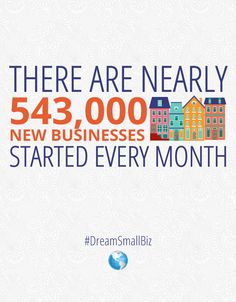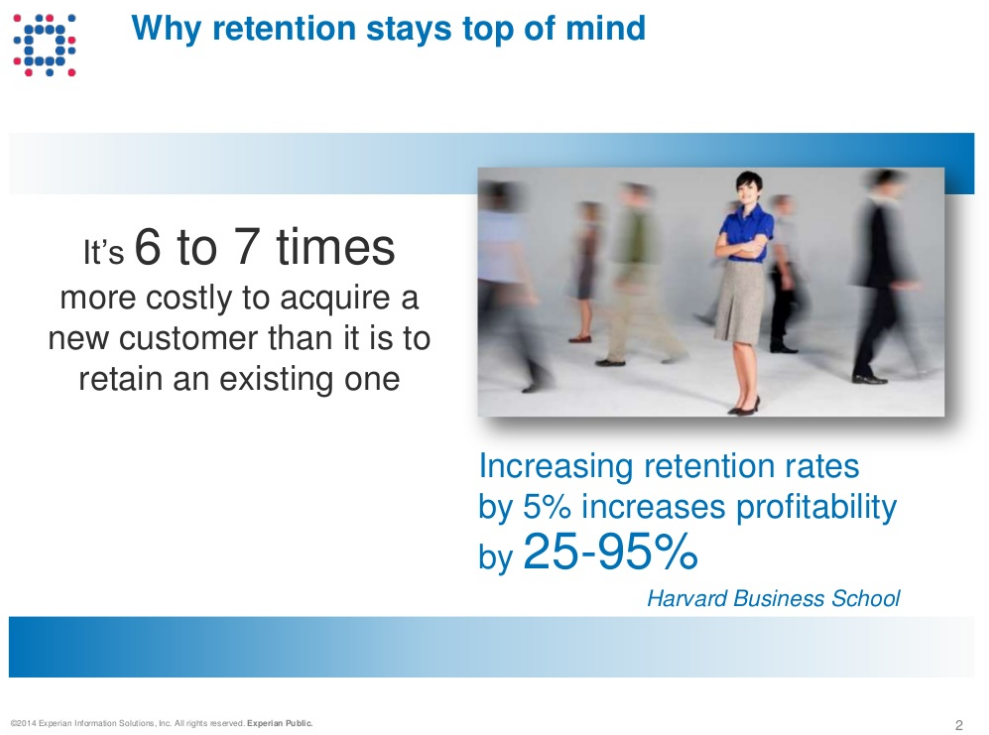
Writing more commercial insurance policies is an excellent strategy to build a sound book of business. Simply put, commercial policies are “stickier.” Why write three policies per household when you can write 10+ policies for a business owner (three on his/her personal and seven related to his/her business)?
Workers’ Compensation Insurance (Workers’ Comp) is one of the most important concerns for many business owners in the U.S. . Almost every business that has employees must have business insurance to handle their statutory obligations to workers, in the event of an injury. As an employer, there is a tremendous amount of liability associated with on the job injuries.
Almost every state requires an employer to carry Workers’ Comp. Legally employees must have that minimum layer of security, in the event of an injury. Many employers are going through their “State’s Workers’ Comp Fund” to purchase this type of coverage.
However many of the larger providers are getting a lot more aggressive in selling commercial lines, including Workers’ Comp, at more attractive rates. Workers’ Comp may provide payments, to the injured worker, which may then cover medical treatment, temporary and permanent disability along with death benefits.
Many SMBs (Small-Medium Businesses) are in need of professional consultation on this fairly complicated topic. That’s where your agency comes into play.
Here are a series of questions to ask yourself: Do I have a “Commercial Lines” specialist? Do they do weekly business walks looking to speak with the decision-maker of each business they enter? Are they systematic about keeping accurate records of the conversations they’re having? Do they know the penetration rates of your “State’s Workers’ Compensation Fund” for my market? Do they know the general Workers’ Comp pricing competitors are charging, given the vertical, in my community?
Many business owners will be eager to discuss insurance options, but business insurance doesn’t sell itself. Business owners need to see and hear the W.I.I.F.M. (What’s In It For Me). What differentiates your products, and services, from the field?
Have you thought about having your “Commercial Lines” specialist do a side-by-side comparison between your company’s offerings and the top three providers that service your area? You’ll then see where you “stand out from the crowd.”
In this article, we’ll tackle how to handle the complex task of selling more Workers’ Comp. While there are certain state level nuances to consider, these tactics can be used to win business customers regardless of location, size, or level of objection to buying Workers’ Comp insurance.
Here’s what you’ll learn:
- Why becoming an educator is important, and how to position yourself as a trusted expert in your field.
- How the customers you already have could be a goldmine for writing more workers comp.
- Our best tips for identifying the right business customers for your agency.
- Why targeting high-risk workers comp customers could be advantageous for your business.
People Won’t Buy If They Don’t Understand
As a sales professional, you probably already know there are several key reasons that people object to buying. The prospects may not trust you, they may not have a need for your product or service, or they might not be able to afford what you’re offering.
Not much can be done if your prospects have no current need for your products. But just about every other objection can be overcome by your well trained team.
We recommend you ask yourself, “Does my prospect understand the product I’m offering?”
It is easy to assume that a business owner has already done his homework on Workers’ comp. After all, this type of insurance is a basic requirement of running a company.
But in reality, many business owners are too preoccupied with other business objectives to grasp the finer points of their insurance needs. They may have settled for the first insurance offer to come along, without fully understanding what their company needs and why they need it.
The realization that they have inadequate insurance might not occur until it’s too late – i.e. when an employee gets injured at work and sues for liability.

Source: Shipping Container Tool – http://www.shippingcontainertool.com/cost-workers-comp-payments-1-billion-dollars-per-week
Imagine if you could be a trusted authority who provides your business prospect with a better understanding of Workers’ Comp.
What if you could teach your prospects something, instead of jumping right into selling them your product or service?
We’re all being pummeled with sales messages on a daily basis, including TV commercials, pop-up ads, billboards, and website banner ads. But we actually hate being “sold to, and we loathe pushy salespeople.
We do like learning more about the things that are important to us – and that’s where you come in as an agent.
Make it your goal to become the best educator in the workers’ comp sector for your market area. There are a lots of complexities to unravel when it comes to business insurance. Could you be deemed, “the unraveler” – the person who can make business insurance easy to understand? If so, prospects will flock to your agency and eagerly listen to what you have to say.
That’s a surefire way to build the trust you need to convert a skeptical prospect into a loyal customer.
To position yourself as an educator for your prospects, you must:
- Be open and honest.
- Provide lots of useful information without pressuring for a sale.
- Add your story into the equation to personalize the interaction.
- Be patient.
Your exact approach will depend on your assessment of the requirements of the business – but you can start with educating the customer about how to decide whether he actually needs Workers’ Comp insurance. Not every business is required to purchase this type of insurance, so it will be helpful to your clients to get information about how they can decide whether or not it’s right for them.
In many states, sole proprietors and partnerships are not required to have coverage, but may cover themselves if they so choose. You might be asking yourself, “Isn’t it a waste of time to educate these kinds of customers, and teach them that they don’t actually need to buy Workers’ Comp coverage?”
We know it’s counterintuitive, but It’s not a waste of time at all…because as soon as those customers hire their first employees, they’ll be coming straight back to you to buy Workers’ Comp coverage. They’ll return to you because they know, like, and trust you – and that’s because you’ve taken the time to educate them about what they need for their businesses.
Some sole proprietors may want to get coverage even if they are not required to by law. There are other advantages to getting business insurance beyond employee liability risks. By highlighting all the advantages of Worker’s Comp insurance, you might also convince some businesses to buy insurance before they are legally forced to do so.
Look at The Customers You Already Have

Source: via Pinterest – https://www.pinterest.com/pin/113575221825265895/
Before you kick off a new marketing campaign to find new prospects in need of Workers’ Comp, why not look at your current book?
When we have a new product or service offering, we tend to overlook our existing customer base – but one of the quickest and most cost-effective ways to increase revenues is to sell relevant product offerings to your current customers. According to multiple sources (including Harvard Business School), it’s up to seven times more expensive to acquire new customers than it is to retain existing ones.
With approximately 543,000 new businesses starting every month, the chances are good that some of your current customers will require Workers’ Comp business insurance in the near future.

Source: Image via Experian Slideshare – https://www.slideshare.net/ExperianBIS/30-015-profitabilitydrivencustomerretention?ref=https://www.outboundengine.com/blog/top-10-customer-retention-presentations-on-slideshare/
Checking in with your existing customers about their potential business needs can also make your customers feel appreciated and taken care of, which leads to higher agency retention rates. Ask them, “What are your growth plans over the next 12, 24, 36 months?” That’s a sure-fire way of helping them plan for future growth.
So what’s the best way to market your new product offering to existing customers?
You already have an established relationship with your current customers, so hopefully there’s no need for you to establish your reputation, demonstrate your skills, or prove the value of insurance.
The groundwork has already been laid, and the customer is already convinced. Now your job is to to tell your customers about another relevant product or service, which shows you care and understand their needs.
- Talk to your customers – It is a good practice to meet with your customers periodically – either in person, over the telephone, or digitally. Many agents only reach out to the current customers when policy renewals are due, but it’s a good idea to have quarterly or semi-annual meetings to check in with your commercial customers to see how they’re doing. These regular meetings give you an opportunity to make sure your customer is happy with your services, but you can also discover opportunities to offer other insurance products (such as Workers Comp).
- Make an offer – Special offers are often used to entice new customers, but consumers often complain that once a vendor has snagged their business, the good deals stop coming. So don’t hesitate to make a compliant, new Workers’ Comp offer, and broadcast it to your customers. The ones who are considering business insurance, including Worker’s Comp, will come to you. Imagine if one of your customers just hired their first employee, and now she’s on the lookout for Workers Comp insurance. After logging onto Facebook, she notices a special offer from your agency for the type of insurance she needs. She’s considerably more likely to sign up for that type of insurance with you, an agent she already knows and trusts, rather than searching around for another provider.
- Announce it to everyone – Even if you don’t have a special offer to give to your customers, simply letting them know that you can help with Workers’ Comp insurance can make a difference. Your customers may not realize they can discuss this type of insurance with you. Instead, they may seek out a specialist exclusive to the “Workers’ Comp” arena without ever giving your agency consideration. .
Eliminate that issue by publicizing the fact that you can help with business insurance. That means going further than simply adding it as a service on your profile page. You must announce it where all your current customers can see the offer, including on social media groups and posters in your office. You can even consider sending out postcards to your current commercial customers, educating them about your business offerings.
High-Risk Workers’ Comp Insurance
You can also consider “niching down,” or narrowing your service to a specific need within a targeted group, such as High-Risk Compensation Insurance.
It may sound counterintuitive, but shifting your approach to target a smaller group can lead to greater success. Many of today’s leading companies, like Apple, started out targeting a specific niche of people, e.g, education and graphic design sectors
The smaller the niche, the easier it is for you to market to your audience. For example, rather than offer Workers Comp insurance to companies with few employees and a little cash, why not focus your efforts on writing more contractors’ insurance. Or, how about positioning yourself as the go-to agent for pay-as-you-go Workers Comp insurance? You could even trim your target market further by specifying age, gender, and location. .
Targeting a niche such as the high-risk demographic might seem daunting, but bear in mind that the smaller your target market, the fewer competitors you will have vying for the same audience. And when the perfect customer comes along who fits into your specific niche, your marketing messages are going to speak directly to him/her she’ll be excited to do business with someone who understands her business needs.
Here are some tips to help you to identify and target your niche market:
- Utilize your current knowledge, expertise and skills. What specialty can you I use to benefit a specific group of people? Do you understand the intricacies of the high-risk market? Do you know the different laws governing contractors’ insurance in my state? Whatever your speciality, you can probably find an audience to serve.
- Get personal, and let people know your story. Agents tend to be reserved and formal. That is necessary to portray that professional image which may serve well when dealing with large, established companies. When targeting a small subset of the market, though, it helps to be more open and informal. People want to hear your story – it endears them to you and your agency and establishes a sense of loyalty.
Tapping Into the Workers’ Comp Market Could Be a Boon for Your Agency
A record high 27 million Americans are starting or running new businesses, according to a report from the Global Entrepreneurship Monitor. That means there’s a huge need for new Workers’ comp policies. As all these new businesses transition from start-ups to medium-sized businesses, you have the opportunity to be their trusted agent for all their insurance needs.
You can tap into this Workers’ Comp marketing by positioning yourself as an educator in the early stages, reaching out to existing customers and becoming a specialist in a specific niche.
Your efforts will be rewarded as these prospects scale their business and have an ever greater need for your insurance products and services.





